Results
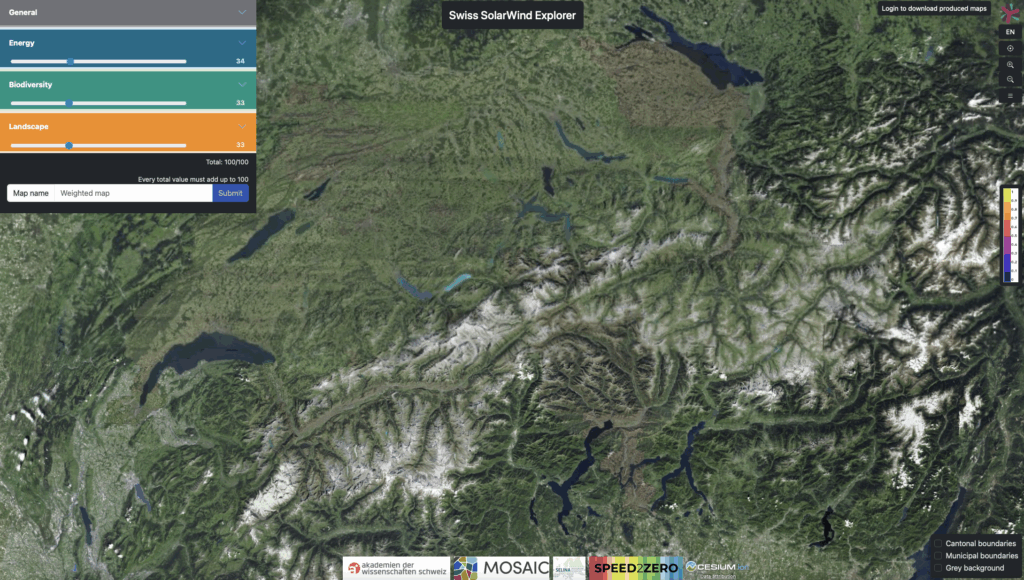
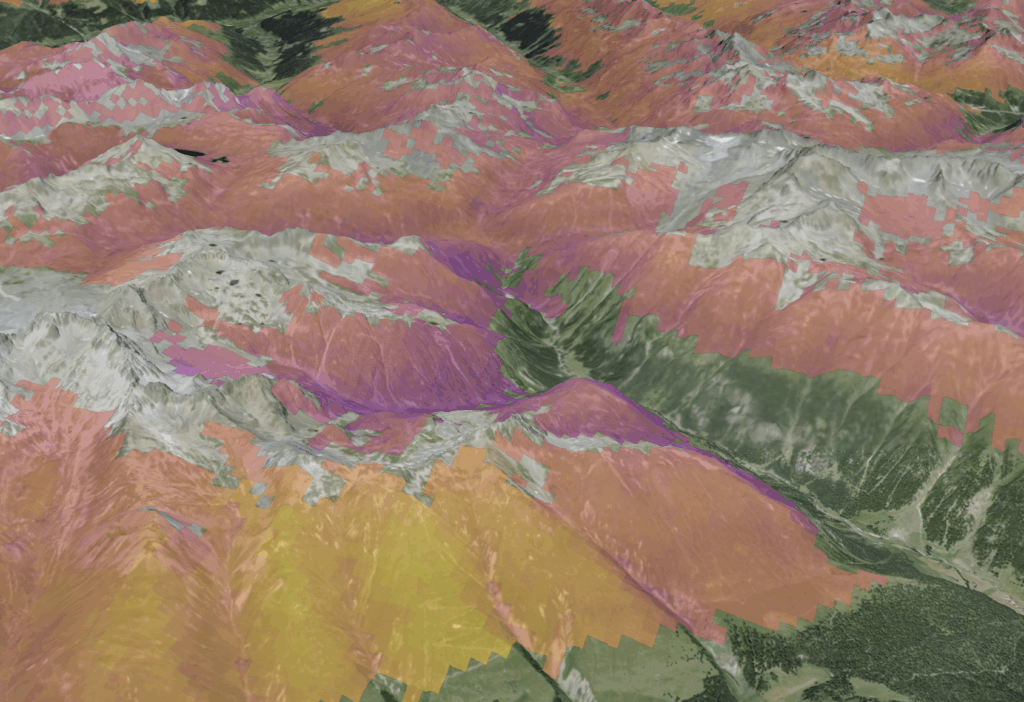
Webtool: Swiss SolarWind Explorer –Identifying low-conflict areas for solar and wind power plants
The expansion of renewable energies is essential for achieving our national climate and energy targets. However, with the growing demand for wind and alpine solar plants, the pressure on biodiversity and landscape protection is also increasing. The Swiss SolarWind Explorer offers a data-based tool for resolving these conflicting interests. The interactive webtool identifies areas with high suitability for solar and wind power plants and low potential for conflict with biodiversity and landscape conservation.
The publicly accessible webtool is based on a comprehensive catalogue of criteria, which was developed on the initiative of the Swiss Academy of Sciences in a participatory process. These broadly supported criteria were then translated into geodata and visualised in an interactive map. This makes a complex topic accessible and creates the basis for objective discussions and well-founded decisions within the energy transition.
A first version was presented in spring 2025 and will be continuously developed further until the end of 2025 – for example through in-depth analyses of wind energy.
To the Webtool

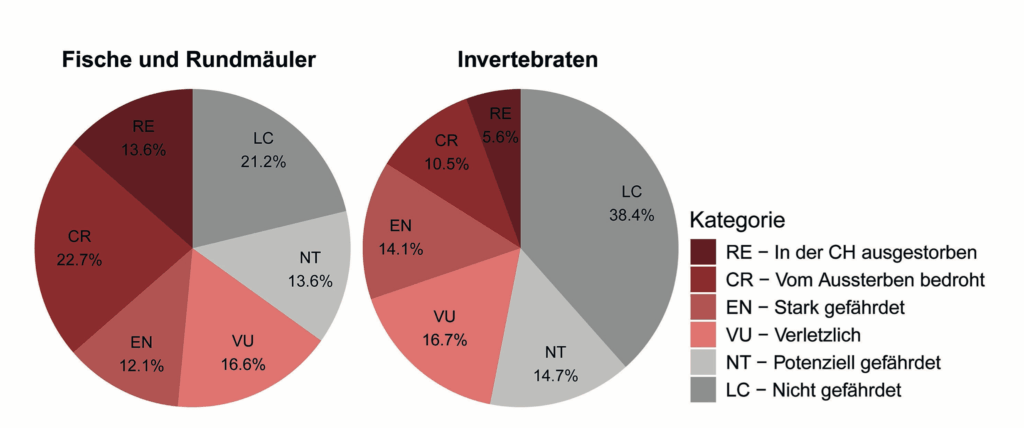
Article: Residual water – In search of the right amount: determination, impacts, and requirements
More than 30 years ago, when residual water requirements were anchored in Swiss water protection law, an approach prevailed that led to minimum flow levels lower than those recommended by ecological studies. Today, in light of climate-induced changes in river discharge, the ongoing loss of biodiversity, and competing demands on water resources, the question of what constitutes an appropriate residual flow has resurfaced.
How are residual water values determined today? What are the concrete ecological impacts of reduced flows in rivers and streams? And how can the conflicting interests of hydropower production and biodiversity protection be better reconciled?
These questions are explored in depth in this interdisciplinary article.
Article in German
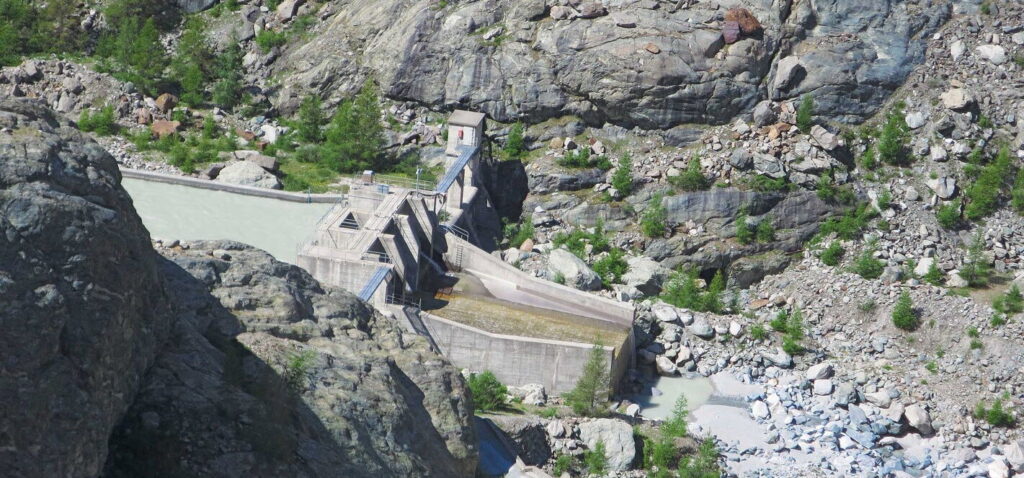
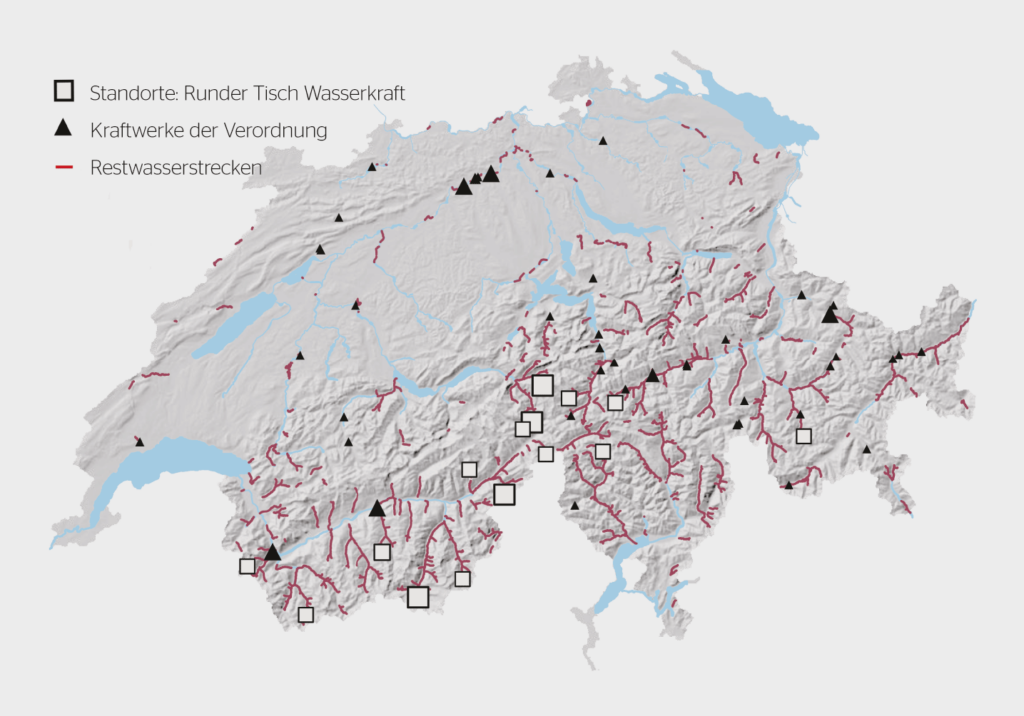
Article: The contested residual water –
Amid three crises
Climate change is advancing, biodiversity loss is intensifying and the energy supply is under pressure. These three global challenges, often referred to as crises, affect water bodies and the remaining wetlands as well as the entire water industry, especially hydropower. At the intersection of the three crises is the politically contested issue of residual water.
- In Switzerland, a total of around 2,300 kilometers of river are considered residual flow routes.
- Residual water means a reduction in production for hydropower, but for aquatic ecology it is an existential minimum.
- In the past, it has repeatedly been shown that the influence of residual flow regulations on hydropower production is overestimated.
- Hydropower plants on small water bodies are more affected by residual flow regulations, but contribute less to hydropower production.
- Public basic data on residual flow is important for sustainable decision-making processes in water management.
Article in German
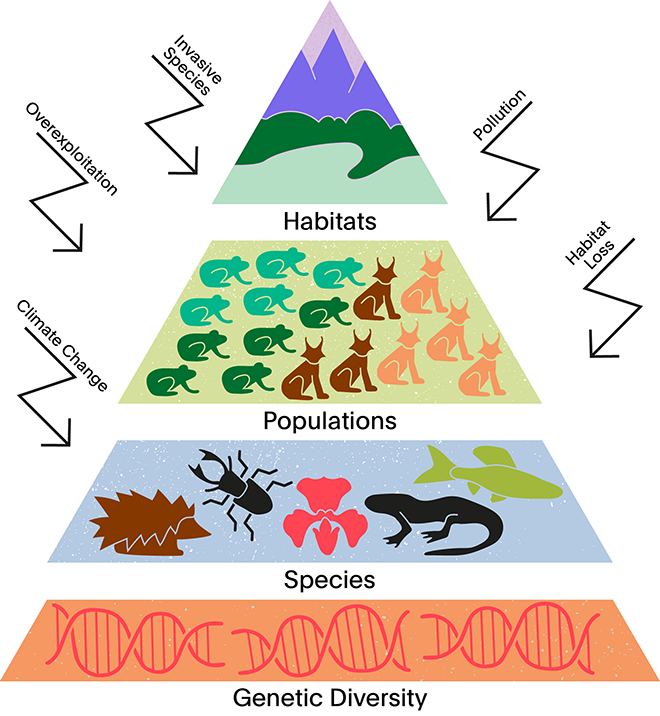
Factsheet: Why Biodiversity matters and its role in climate regulation
Biodiversity is not merely a vast collection of flora and fauna; it is the very foundation of our existence. But what exactly is biodiversity and why is it so important for us humans? What impact does climate change have on biodiversity and, even more exciting, what role can healthy biodiversity play in a changing climate? These and more questions are addressed in this new scientific factsheet on biodiversity.
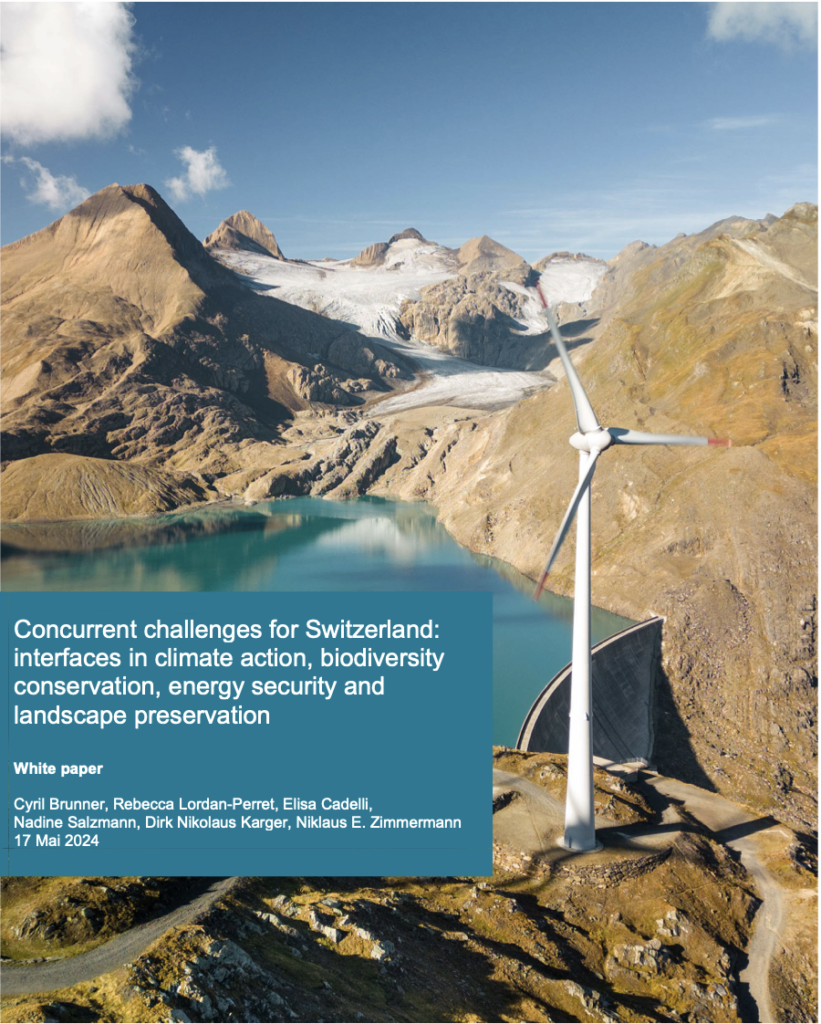
White paper: Concurrent challenges for Switzerland – interfaces in climate action, biodiversity conservation, energy security and landscape preservation
In the coming years, the Swiss population will have to make various important decisions in order to meet the complex challenge of mitigating climate change: How can we simultaneously protect biodiversity, preserve the landscape and secure the energy supply? In this short white paper, we discuss some of the implicit and necessary trade-offs that Switzerland must address, and how this urgent energy transition to tackle climate change can be addressed to limit the impact on biodiversity and the landscape.
White paper in English
White paper in German
White paper in French
© 2025 SPEED2ZERO Joint Initiative
